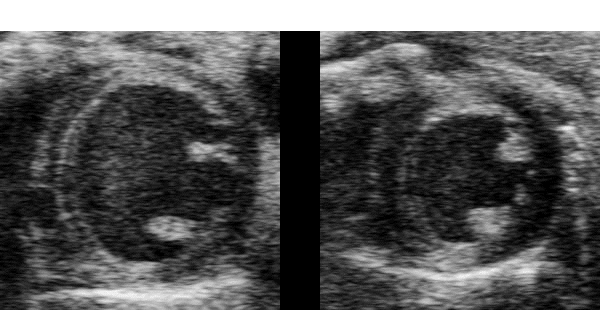Potential Breakthrough: Radiation Therapy Identified as Possible Treatment for Heart Failure
Cardiologists and radiation oncologists at Washington University School of Medicine in St. Louis pioneered the use of radiation therapy — a strategy typically used against cancer — to treat patients with a life-threatening abnormal heart rhythm called ventricular tachycardia.
Now, after studying the cardiac effects of radiation in a small number of these patients and modeling the effects of low-dose radiation in mice with heart failure, the research team has found that low-dose radiation therapy appears to improve heart function in various forms of heart failure. More research is needed before the investigators can evaluate this therapy in patients with heart failure, but the study suggests that radiation’s effects on injured hearts with high levels of inflammation may be more varied — and perhaps beneficial — than previously understood.
The study, published Nov. 28 in the journal Med, suggests that low-dose radiation therapy improves heart function, at least in part, by reducing the number of inflammatory immune cells in the heart muscle.
“The radiation therapy used to treat ventricular tachycardia is targeted to a specific location in the heart; however, a large portion of the rest of the heart gets a low-dose exposure,” said co-senior author and cardiologist Ali Javaheri, MD, PhD, an assistant professor of medicine. “We wanted to understand the effects of that low-dose radiation on these patients’ hearts. There was concern that it could be harmful to overall heart function, even though it treats dangerous arrhythmia. We were surprised to find the opposite: Heart function appeared to be improved after radiation therapy, at least in the short term.”
About 6.2 million American adults currently live with heart failure, according to the Centers for Disease Control and Prevention. More than half of heart failure patients hospitalized for the condition die within five years of that first hospitalization, demonstrating a need for better therapies. A failing heart gradually loses its ability to properly supply the body with oxygenated blood. A complex condition, heart failure can have diverse triggers, including a past heart attack, viral infection or chronic arrhythmias such as ventricular tachycardia.
A group of nine patients with ventricular tachycardia was evaluated with cardiac MRI before and after radiation treatment, with the MRIs showing improved heart function soon after radiation. In particular, the patients’ hearts showed improved pumping capacity of the left ventricle, which supplies blood to the entire body. The improvement was seen a few days after treatment, so it was deemed unlikely to be due to the reduction of the arrhythmia, which happens more gradually over the ensuing weeks and months.
The researchers also studied the effects of similar low-dose radiation to the heart in groups of mice with heart failure from three different causes. Similar to what was observed in the human patients, the researchers found improved heart function in mice receiving radiation therapy, especially in the left ventricle. In the mice with progressive heart failure, radiation therapy increased survival of the animals, indicating that improvements in heart function translated to improved survival.
The researchers found that the failing mouse hearts that received radiation had reduced fibrosis — or scar tissue — and reductions in cardiac macrophages, a type of immune cell that can drive inflammation in the heart. In general, the irradiated hearts had fewer cells that proliferate quickly — such as immune cells and fibroblasts — which tend to contribute to worsening heart failure. In contrast, normal heart muscle cells generally do not divide often, if at all.
“We know that rapidly dividing cells — such as cancer cells, for example — tend to be more susceptible to death by radiation,” said co-senior author and radiation oncologist Carmen Bergom, MD, PhD, an associate professor of radiation oncology. “The effect we see in these hearts is likely more complex than a simple reduction of rapidly dividing inflammatory immune cells. We are continuing our research to delve more deeply into what else may be happening, but we have been pleasantly surprised to see evidence that low-dose radiation in these hearts may reduce inflammation and help remodel the heart in a way that is beneficial.”
To understand more about radiation’s effects on the heart, the researchers plan to continue their investigations of the patients already receiving radiation therapy for ventricular tachycardia. The current study showed, via MRI, improved heart function. Next, the researchers plan to conduct more advanced studies to see if there is evidence of reduced inflammation in the human hearts, similar to what they found in mice.

